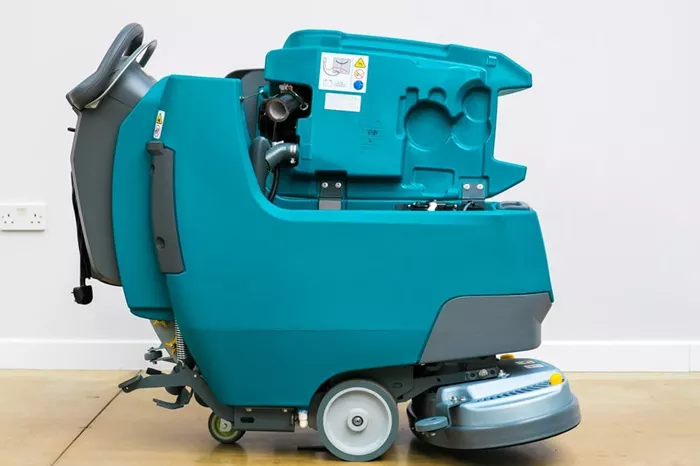Scrubbers are essential equipment in the cleaning industry, designed to handle a variety of cleaning tasks efficiently. They come in various forms, such as floor scrubbers, air scrubbers, and chemical scrubbers. Each type serves a specific purpose, making them valuable tools in maintaining cleanliness. However, despite their numerous benefits, scrubbers also have several disadvantages. Understanding these drawbacks is crucial for anyone considering the use of scrubbers in their cleaning routine. This article delves into the disadvantages associated with scrubbers, providing a comprehensive overview of the potential challenges and limitations.
High Initial Cost
Expense of Acquisition
One of the primary disadvantages of scrubbers is their high initial cost. Acquiring a scrubber involves a significant financial investment. Whether purchasing a floor scrubber, an air scrubber, or a chemical scrubber, the upfront expense can be substantial. This high cost can be a considerable barrier for small businesses or individuals with limited budgets.
The price of a scrubber is influenced by several factors, including its type, size, and features. For instance, advanced models such as ride-on floor scrubbers or multi-stage air scrubbers are generally more expensive than basic versions. Additionally, the total cost includes not only the purchase price but also additional expenses such as accessories, installation, and initial training.
Financial Impact on Businesses
For businesses, the high initial cost of scrubbers can impact financial planning and cash flow. While these machines can enhance cleaning efficiency and productivity, the significant upfront investment requires careful budgeting. Businesses must weigh the long-term benefits of using scrubbers against the immediate financial outlay. This evaluation is essential to determine whether the investment will provide adequate returns in terms of improved cleaning results and operational efficiency.
Maintenance and Repair Costs
Ongoing Maintenance Requirements
Scrubbers require regular maintenance to function effectively and maintain their longevity. Routine maintenance tasks include cleaning filters, replacing brushes or pads, and inspecting various components for wear and tear. This ongoing maintenance can lead to additional costs and demands on time and resources.
Regular maintenance is necessary to ensure that the scrubber operates at peak performance. Neglecting maintenance can lead to decreased efficiency and potential damage to the equipment, which may result in even higher repair costs down the line. Proper maintenance helps prevent breakdowns and extends the lifespan of the scrubber, but it also involves a commitment of time and effort.
Repair Considerations
In addition to routine maintenance, scrubbers may need repairs over time. Mechanical issues, such as motor failures or component malfunctions, can arise and result in unexpected repair expenses. The cost of repairs can vary based on the severity of the issue and the availability of replacement parts. This aspect of owning a scrubber can add to the overall cost of operation and impact the budget allocated for cleaning equipment.
Maintenance and repair needs can also affect the operational efficiency of scrubbers. Downtime caused by maintenance or repairs can disrupt cleaning schedules and reduce productivity. Users must plan for these potential disruptions to ensure that cleaning operations continue smoothly and efficiently.
Complexity and Training Needs
Learning Curve
Scrubbers, particularly advanced models, can be complex to operate. Users may encounter a learning curve when familiarizing themselves with the equipment’s features and functions. This complexity can be a disadvantage for individuals or businesses that require a straightforward and easy-to-use cleaning solution.
Training is often necessary to ensure that users can operate scrubbers effectively and safely. The need for specialized training adds to the overall cost and time required for implementing scrubber systems. Proper training is essential to maximize the benefits of the equipment and avoid potential operational issues.
Operational Challenges
The complexity of scrubbers can lead to operational challenges, especially if users are not well-versed in the equipment’s operation. Misuse or improper handling can result in suboptimal cleaning performance or damage to the equipment. Ensuring that users are adequately trained and informed is crucial for effective operation and to prevent problems that could arise from incorrect use.
see also: Is It Safe to Drive a Floor Scrubber?
Environmental and Safety Concerns
Chemical Usage
Chemical scrubbers often utilize cleaning agents that may pose environmental and safety concerns. Some of these chemicals can be harsh or toxic, requiring careful handling, storage, and disposal. The use of such chemicals can impact indoor air quality and worker safety, making it important to follow safety guidelines and best practices.
The environmental impact of chemical scrubbers is another significant consideration. Improper disposal or excessive use of chemicals can contribute to pollution and environmental harm. Users must be mindful of environmental regulations and adopt practices that minimize their ecological footprint.
Safety Issues
Scrubbers, especially those with mechanical components, can present safety risks. Users must adhere to safety guidelines to prevent accidents, such as slips, falls, or injuries from moving parts. Proper safety protocols and training are essential to mitigate these risks and ensure a safe working environment.
Conclusion
Scrubbers are powerful tools for maintaining cleanliness in various settings, but they come with several disadvantages. High initial costs, ongoing maintenance and repair expenses, complexity, and environmental and safety concerns are some of the key drawbacks associated with scrubbers. Understanding these limitations is essential for making informed decisions about equipment acquisition, operation, and maintenance.
By recognizing the potential disadvantages, users can better plan for their cleaning needs and budget accordingly. Addressing these challenges effectively can lead to a more balanced approach to using scrubbers, ensuring that their benefits outweigh the drawbacks. This approach helps in achieving successful cleaning outcomes and maintaining clean, well-maintained spaces.

